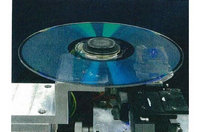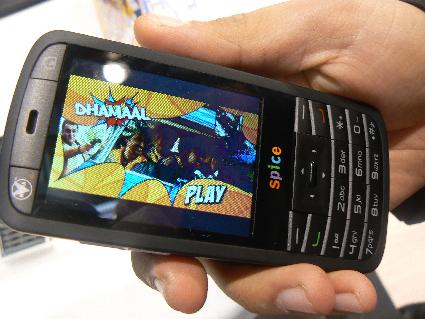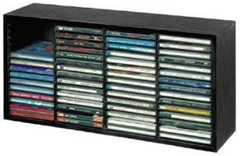Tag: optical disc
GE creates 500GB holographic storage disc
It seems that every other month someone’s coming out with the prototype of a disc that can store X times more than a DVD/Blu-ray. I was actually thinking of making one myself with a stack of blank BDs and some blu-tac but then GE put together a method of storing 500GB using holographic disc storage which is much more interesting.
Instead of etching 2D patterns into the surface, holographic technology uses a three dimensional process with the disc acting like a maze of microscopic mirrors giving a depth to the optical layer where all the data is stored. GE expects them to be introduced by 2012 but the real key is, of course, how expense they will be.
Blu-rays began as $1 per GB when they first came out dropping to something closer to half that today. GE hopes these holographic discs will be 10 cents per GB, so a much more affordable $5 for the whole thing.
The thing I can’t help wondering, though, is whether there’s really a viable future in optical storage? Between SSDs and cloud computing, I was hoping to rid myself of discs by 2012.
(via NYT)
Pioneer on a roll, develops 500GB optical disc
 Only last month we were heralding Pioneer’s development of a 400GB optical disc, and just a month later its researchers have popped on another four layers and 100GB of storage to create a half terabyte disc.
Only last month we were heralding Pioneer’s development of a 400GB optical disc, and just a month later its researchers have popped on another four layers and 100GB of storage to create a half terabyte disc.
In actual fact, to be fair, Pioneer has simply confirmed the “viability” of such a disc, which may or may not exist in a laboratory somewhere. The company believes that the technology, based on the same techniques used to make current 25GB and 50GB Blu-ray discs, is easier and cheaper to produce than holographic discs…
Pioneer researchers create 16-layer, 400GB discs
Pioneer Corporation has a new world-first on its hands – it has created the first ever 16-layer, read-only optical disc. It has a capacity of 400 GB and every single one of its layers has the same storage as a Blu-ray disc. Pop that one in your pipe, Sony.
MWC 2008: Spice Movie Phone has a built-in optical disc drive

Indian handset manufacturer Spice is unveiling its innovative Movie Phone later today, but I’ve had a go on it already. It’s the first handset to come with a built-in optical disc drive for playing movies, and goes on sale in India this June. The discs are a proprietary format, but they use blue laser technology, and the compression uses the H.264 standard.
Brits still like music CDs despite rise in Internet downloads
 We’re still an nation who likes our CD collections, according to recent figures from the British Phonographic Industry.
We’re still an nation who likes our CD collections, according to recent figures from the British Phonographic Industry.
Despite the rise in popularity of music downloading (both legal and not), nearly half of the people recently surveyed by PlusNet said that they thought it would be at least ten years until the CD becomes obsolete, with one n ten saying that the format would never die.
Buffalo Technology to launch external high definition and DVD drives in Europe
 Buffalo Technology has announced that it will be launching a range of external DVD and high definition disc PC drives in Europe.
Buffalo Technology has announced that it will be launching a range of external DVD and high definition disc PC drives in Europe.
First up will be a top-of-range device capable of reading and writing to Blu-ray discs, and reading HD DVDs, as well as handling standard DVD media. It will come bundled with disc authoring software from Nero.
CE industry approves download-to-burn technology for ripping own DVDs
A group of consumer electronics companies, operating as the DVD Copy Control Association, has approved the technology making "download-to-burn" services a reality. The technology will allow consumers to create a DVD of a film they've bought from an online service,…
Lite-on's new DVD writers increase write speed to 20x
Lite-on, manufacturers of optical media hardware both under their own brand and for other manufacturers, have announced the introduction of a DVD writers that claims write speeds of 20 times. Until now, 16x speed has been accepted as the fastest…















